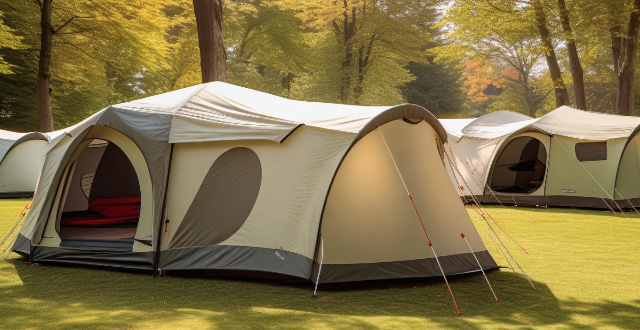This comprehensive guide helps campers choose the right camping tent by considering factors like number of people, seasonality, weather conditions, tent features, weight and portability, space and livability, budget, reviews, and trying before buying.

Choosing the Right Camping Tent
When it comes to selecting a camping tent, there are several factors you need to consider to ensure that your outdoor adventure is comfortable and enjoyable. Here's a comprehensive guide on how to choose the right camping tent:
1. Determine Your Needs
- Number of People: Decide how many people will be sleeping in the tent. Choose a tent that can comfortably accommodate everyone with some extra space for gear.
- Seasonality: Consider the time of year you will be camping. If you plan to camp in all seasons, opt for a 4-season tent. For summer camping, a 3-season tent should suffice.
- Weather Conditions: Check the expected weather conditions at your camping location. If you anticipate strong winds or heavy rain, look for a tent with a robust structure and good waterproofing.
2. Tent Features
- Material: The tent material should be durable and water-resistant. Nylon or polyester with a high denier count is usually a good choice.
- Poles: Aluminum poles are lightweight and sturdy, making them ideal for backpacking. Fiberglass poles are heavier but often more affordable.
- Ventilation: Look for tents with mesh vents or windows to improve airflow and reduce condensation.
- Setup: Consider how easy the tent is to set up. Some tents have color-coded poles and clips for quick assembly.
3. Weight and Portability
- Backpacking vs. Car Camping: If you're backpacking, prioritize lightweight tents. For car camping, weight isn't as much of an issue, so you can opt for larger and more comfortable tents.
- Packed Size: Check the packed size of the tent to ensure it will fit in your backpack or car storage.
4. Space and Livability
- Headroom: Look for tents with higher ceilings to provide more comfortable sitting and changing spaces.
- Vestibules: Vestibules offer additional covered space for storing gear outside the main sleeping area.
- Interior Pockets and Organization: Interior pockets and organizers help keep small items tidy and easily accessible.
5. Budget
- Cost: Determine how much you're willing to spend. Higher priced tents often offer better materials, features, and durability, but there are also great budget options available.
6. Reviews and Ratings
- Research: Read online reviews and ratings from other campers who have used the tent. This can provide valuable insights into the tent's performance and any potential issues.
7. Try Before You Buy
- Set Up: If possible, visit a store and set up the tent yourself to get a feel for its ease of setup and overall quality.
By considering these factors, you can select a camping tent that meets your specific needs and ensures a pleasant outdoor experience. Remember, the right tent can make all the difference in enjoying your time in nature.